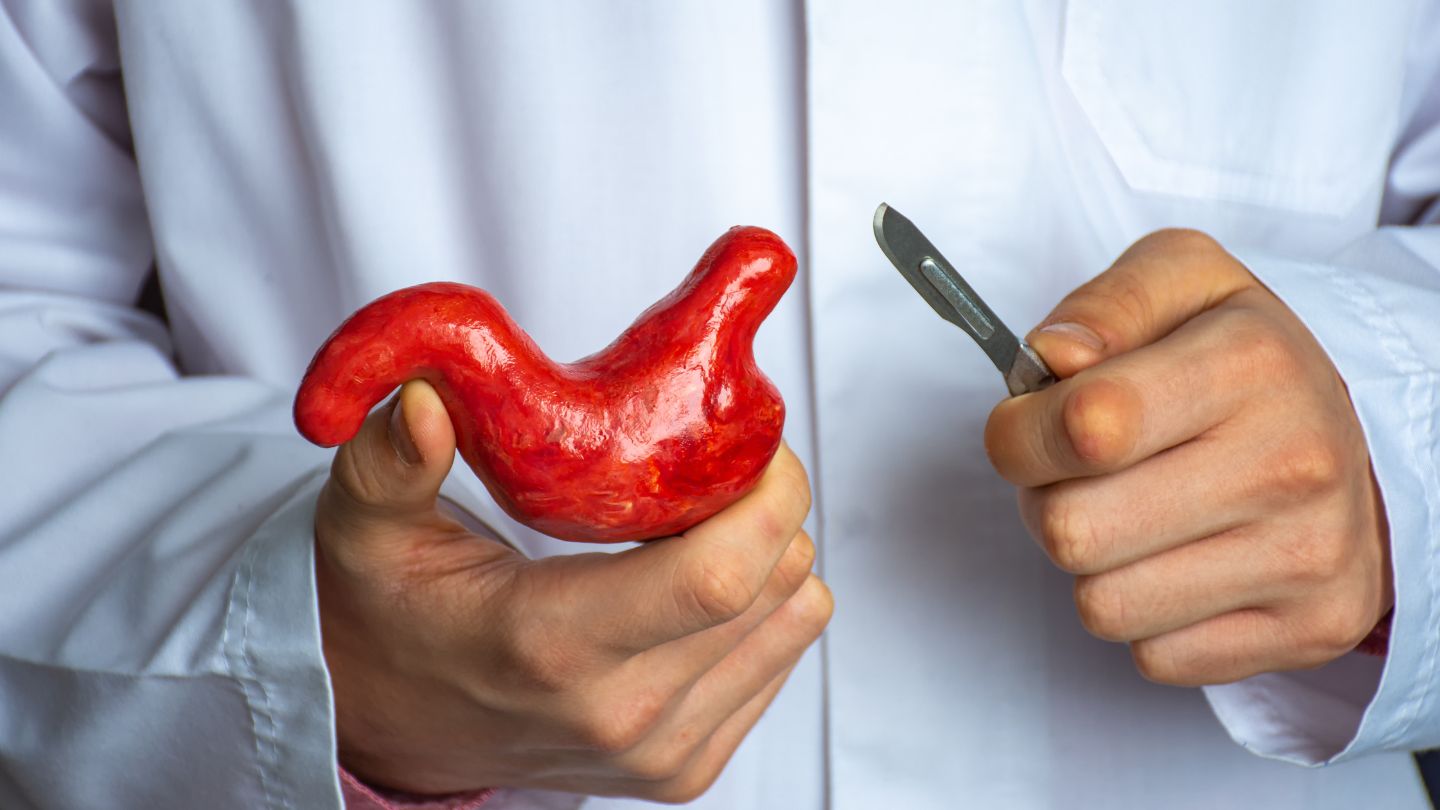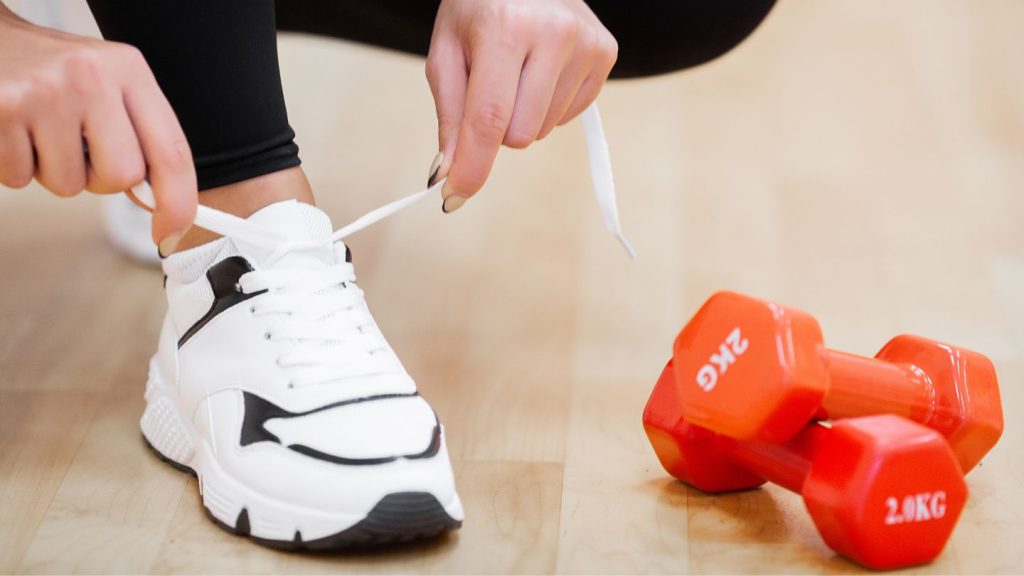
Why Am I Not Losing Weight After Gastric Sleeve Surgery?
Undergoing gastric sleeve surgery is a significant step toward achieving weight loss goals and improving overall health. However, some individuals find that the scale doesn’t move as expected after surgery, leaving them frustrated and confused. If you’re wondering why you’re not losing weight after gastric sleeve surgery, you’re not alone. In this blog, we’ll explore the most common reasons behind stalled weight loss and provide insights to help you get back on track.
Key Takeaways
- Plateaus in weight loss after gastric sleeve surgery are common due to physiological adaptations and require reevaluation of dietary and exercise habits.
- Proper dietary practices, including adequate protein and calorie intake, are essential to prevent weight loss stalls post-surgery.
- Emotional support and stress management play crucial roles in achieving and maintaining weight loss after gastric sleeve surgery.
Common Reasons for Stalled Weight Loss After Gastric Sleeve Surgery
It’s typical for individuals to hit a plateau in their weight loss journey after undergoing gastric sleeve surgery as the body adjusts to its new anatomy with a reduced stomach capacity. Changes that your body experiences, including slower digestion and decreased calorie burning, can influence the pace of shedding pounds. These plateaus appear between three to six months following the procedure.
As time progresses post-surgery, you might find yourself able to consume a wider variety of foods and possibly eat larger portions or partake in less physical activity—all of which can contribute to stagnation in weight loss. It’s crucial to adhere strictly not only to prescribed dietary plans but also to maintain regular exercise habits in order not just sustain but continue advancing towards your weight reduction goals.
The emotional challenges associated with hitting such standstills are significant. Frustration is normal, making patience an invaluable virtue during this phase. Reassessing both what you eat and how much you move could provide fresh strategies essential for moving past these hurdles. Engaging with specialists like bariatric dietitians could yield personalized advice necessary for navigating specific issues affecting ongoing efforts at losing weight.
Dietary Pitfalls Hindering Weight Loss

Your eating habits play a critical role in your weight loss progression following surgery. Disregarding the suggested diet can substantially hinder your advancement towards losing weight. It is vital to concentrate on cultivating healthy eating habits and steering clear of processed foods while ensuring you consume an appropriate caloric intake for successful weight reduction.
To accelerate your journey in shedding excess weight, be mindful of certain dietary missteps that could be obstructing your efforts to lose weight more quickly.
Not Following Post-Operation Diet
Adhering to the recommended nutrition plan is vital for effective weight loss and recovery post-surgery. Post-surgery eating habits should focus on lean proteins, vegetables, fruits, and whole grains to aid weight loss. If adhering to the diet is challenging, consult your doctor for support and tips.
Managing anxiety can improve adherence to dietary and exercise regimens post-surgery. Consistency with your diet plan and seeking professional guidance can help maintain your weight loss journey.
Consuming Too Many or Too Few Calories
After undergoing gastric sleeve surgery, it is essential to monitor and regulate your daily calorie consumption, aiming for an intake between 800 and 1200 calories. Ingesting either insufficient or excessive amounts of calories can impede weight loss efforts. Too few calories may cause muscle wastage and activate the body’s starvation response, which can complicate shedding pounds. On the other hand, a caloric excess could halt weight reduction post-surgery by impacting your weight following the gastric sleeve procedure.
It is advisable to eat three balanced meals per day that consist of a macronutrient composition ranging from 35-50% protein, followed by fats at 30-40%, and carbohydrates making up about 10-35%. To help control overall calorie consumption and ensure continued feelings of fullness throughout the day without additional food intake, steer clear of snacking or grazing in between these meals.
Eating Unhealthy or Processed Foods
Opting for whole, nutrient-rich foods over processed alternatives can enhance the effectiveness of weight loss efforts. Processed items tend to be laden with sugars, unhealthy fats, and preservatives that may hinder progress in shedding pounds.
By choosing whole foods, you provide your body with crucial nutrients necessary for maximizing fat reduction. Emphasizing a healthy diet that is abundant in high protein sources plays a vital role in successfully navigating your journey toward losing weight.
Read more: Why Fad Diets Don’t Work?Importance of Protein and Hydration

Ensuring adequate protein intake is a crucial component of the post-gastric Sleeve Surgery weight loss journey. For optimal health and to support weight reduction following the procedure, it’s important to concentrate on consuming a diet rich in nourishing proteins. Developing healthy eating habits that prioritize solid, nutrient-packed proteins can significantly contribute to effective weight management.
Staying well-hydrated plays an essential role in maintaining overall wellness and facilitating the process of losing weight. It is fundamental for individuals who have undergone gastric sleeve surgery to maintain both proper hydration levels and sufficient protein consumption, as these are key elements for achieving success in their weight loss endeavors.
Inadequate Protein Intake
Adequate protein intake helps maintain muscle mass and promotes satiety, reducing overeating after gastric sleeve surgery. The minimum daily protein intake recommended for weight loss post-surgery is 60 to 90 grams. Each meal should ideally include around three ounces of protein, roughly the size of a deck of cards, with meals consisting of at least 75% high-protein foods.
A common misconception is that eating less leads to faster weight loss. However, protein consumption is essential for energy and weight management. Insufficient protein consumption after surgery risks retrogressive weight loss.
Insufficient Water Intake
Maintaining adequate hydration is essential for healing and can help regulate food intake after weight loss surgery. It is advisable to consume 10 glasses of water each day following the procedure. Spacing out water consumption over the course of the day but being careful not to drink excessively with meals plays a substantial role in supporting weight loss.
Consuming high levels of protein promotes recovery and helps curb hunger between meals. Just as crucial as keeping up with your protein intake is ensuring that you are drinking enough water.
Exercise and Physical Activity

Regular physical activity is an essential component of the weight loss journey following gastric sleeve surgery. To achieve and sustain weight loss after the procedure, it’s vital to integrate exercise into your daily regimen. Exercise not only assists in shedding pounds but also plays a significant role in enhancing overall health.
The significance of regular exercise, including strength training, within your post-sleeve surgery routine should not be underestimated during your quest for weight loss and improved well-being.
Lack of Regular Exercise
Beginning with modest physical activities, such as brief strolls, can aid in recovery after surgery. It’s important to give yourself a six to eight-week healing period before starting any intense exercise regimens. Consistent exercise is key for improving weight loss results following surgical procedures.
Adding an exercise routine into your daily regimen is vital for preserving muscle mass and increasing metabolic rate, which contributes to the long-term success of losing weight.
Avoiding Strength Training
Integrating strength training into your exercise regimen can boost metabolism and assist in shedding pounds after undergoing surgery. It’s essential to maintain muscle mass for continued weight loss following gastric sleeve surgery, as it plays a critical role in increasing metabolic rate. Neglecting this form of exercise might greatly impede efforts to lose weight.
Bypassing resistance exercises can accelerate the journey towards reaching your desired weight reduction targets. By remaining diligent and having an active lifestyle that includes regular strength training sessions, you are likely to accomplish your weight loss objectives more efficiently after sleeve surgery.
Read more: Your Exercise Timeline After Bariatric SurgeryEmotional and Psychological Factors
The success of weight loss following gastric sleeve surgery is greatly influenced by emotional and psychological considerations. Individuals who undergo the procedure may encounter emotional hurdles, such as feelings of dissatisfaction when their rate of losing weight doesn’t meet expectations, which can obstruct progress in managing their weight. The establishment of a supportive network plays an essential role in fostering mental health throughout the process of losing weight.
Incorporating comprehensive health strategies like managing stress levels and ensuring sufficient rest are crucial components for effective control over one’s weight after Sleeve Surgery. Some medications might present obstacles to maintaining postoperative weight management. Thus, they should be monitored attentively.
Stress and Anxiety Management
Managing stress and anxiety effectively is essential to avoid emotional eating, which can impede progress and result in regaining weight after surgery.
Adopting daily practices such as meditation, engaging in exercise, and participating in support groups are efficient methods for controlling stress and anxiety.
Importance of Mental Health Support
Accessing mental health support is essential for addressing emotional challenges post-bariatric surgery. Mental health support is crucial for overcoming psychological barriers to successful weight loss.
Seeking help from a mental healthcare professional if you’re struggling emotionally can make a significant difference in your weight loss journey, especially if you have lost weight.
Medical and Metabolic Considerations
Medical and metabolic factors significantly impact your weight loss journey post-gastric sleeve surgery. Proper water intake is essential for recovery and helps regulate food intake post-surgery. Dehydration negatively impacts weight loss and can stall progress.
The bariatric team can identify reasons for weight gain and develop strategies for successful weight loss in obese patients. Regular visits with the bariatric team are crucial to keep weight loss on track, address potential weight gain, and monitor body mass index.
Metabolic Changes
A slower metabolism after surgery decreases daily caloric needs. Hormonal adjustments post-surgery can reduce hunger sensations and alter energy balance.
Post-surgery, individuals may experience increased insulin sensitivity, altering metabolic rate and energy utilization. Understanding and adapting to these metabolic and bariatric surgery changes is essential for sustainable weight loss.
Medication Side Effects
When progress in weight loss comes to a standstill, it may be necessary to assess whether medications are playing a role. It is vital to seek the advice of healthcare providers and discuss possible adjustments to any drugs that could be impeding your efforts at weight reduction.
Consistently speaking with your healthcare provider can assist in effectively handling any medication-related side effects that affect weight loss. This guidance can support or deter your journey toward achieving desired results.
Revisional Surgery: When to Consider It

Between 7% to 15% of individuals who have undergone initial weight loss surgery may require a second operation, known as revisional surgery, either to improve the results or to rectify issues that emerged from the first procedure. Those typically considered for this follow-up intervention are patients who have not observed satisfactory weight reduction by the period spanning 18 months to two years after their original surgery.
Should complications such as slippage of an implanted band or gastrointestinal problems present themselves post-primary surgical treatment, revisional surgery might be deemed necessary. The advantages anticipated from undergoing a secondary procedure include enhanced overall health outcomes, a more significant reduction in weight, and relief from negative effects associated with the primary surgical experience.
Summary
In conclusion, weight loss after gastric sleeve surgery is a multifaceted journey influenced by factors like diet, hydration, exercise, mental health, and medical considerations. Understanding these aspects and making necessary adjustments can help you overcome plateaus and stay on track toward your weight loss goals. Patience, consistency, and a proactive mindset are essential for long-term success and improved health.
At Wellstar Comprehensive Bariatric Services, we are here to support you every step of the way. Our experienced team offers tailored bariatric programs in LaGrange, West GA, Marietta, Smryna, Cobb, and Austell, which are designed to help you navigate challenges and achieve sustainable weight loss. Contact us today to learn how we can guide you through your journey to a healthier, happier life!
Frequently Asked Questions
Why am I not losing weight after gastric sleeve surgery?
Weight loss may stall after gastric sleeve surgery due to factors such as physiological changes, dietary mistakes, insufficient exercise, emotional issues, or underlying medical conditions.
It’s important to evaluate these factors with a healthcare professional to ensure effective weight loss strategies.
How important is following the post-operation diet?
Adhering to the prescribed diet after surgery is crucial for a successful recovery and maintaining weight control, as it supplies essential nutrients while helping to avoid any rebound in weight.
Following this diet regimen closely plays an important role in facilitating your body’s healing process.
What role does protein intake play in weight loss after surgery?
It is essential to maintain a sufficient intake of protein after surgery for weight loss in order to preserve muscle mass, increase feelings of fullness, and bolster overall health.
By securing proper levels of protein in your diet, you facilitate weight loss that lasts over time.
Can stress and anxiety affect my weight loss journey?
Yes, managing stress and anxiety is crucial as they can lead to emotional eating and sabotage your weight loss efforts.
Prioritizing mental well-being can support your weight loss journey effectively.
When should I consider revisional surgery?
Consider revisional surgery if you haven’t achieved the expected weight loss within 18 months to two years or if you face complications from your initial procedure.
It’s important to consult with your healthcare provider to evaluate your specific situation.
